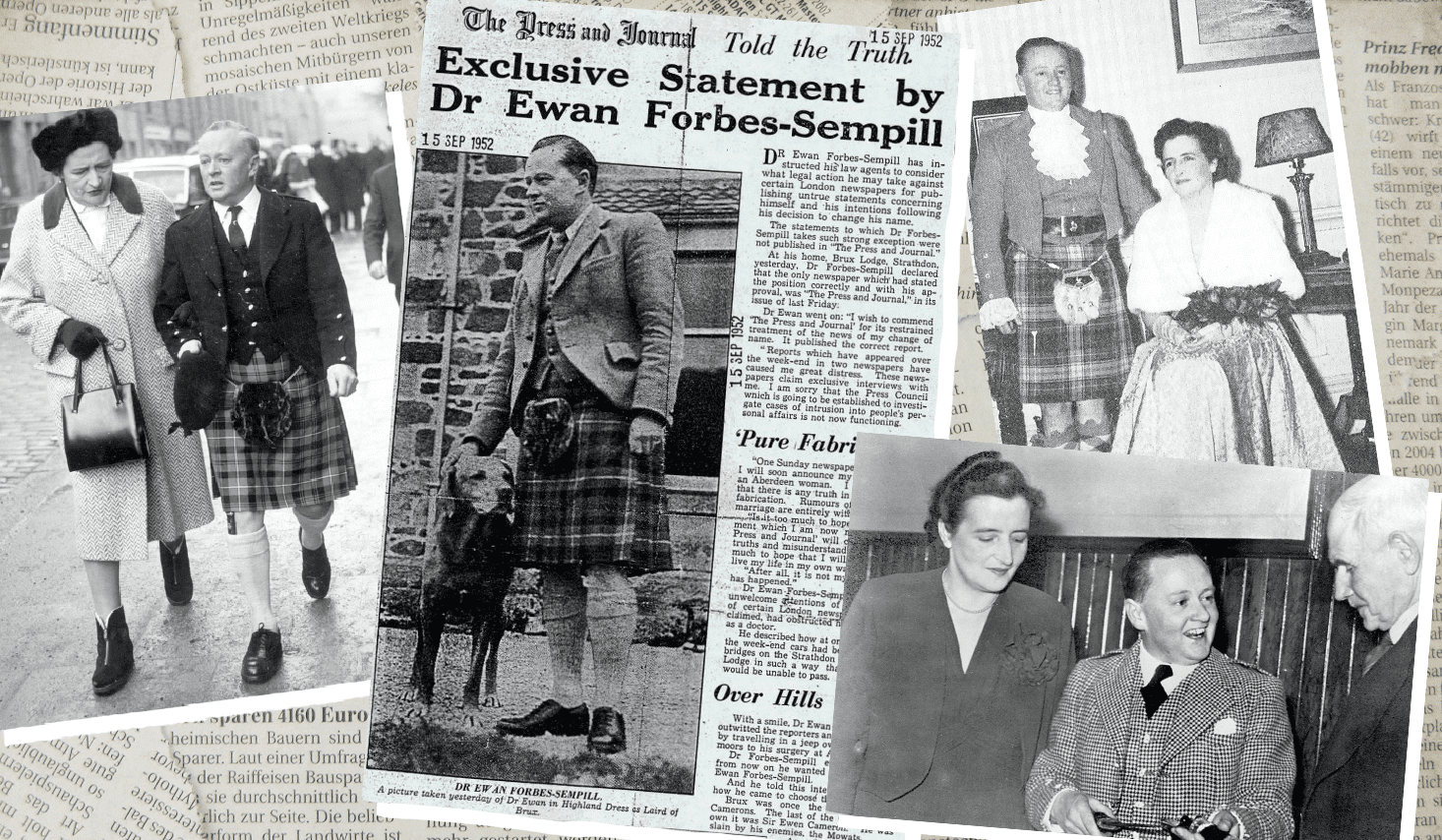
Like most people who grew up in the UK, my history lessons taught me endless facts about the Tudors, allowed me to list most of the things Oliver Cromwell banned in England, and I can easily tell you the three things Lenin promised Russia in their revolution of 1917.
But a trailblazing trans man who changed the course of trans rights in the UK forever, and whose case was buried for over half a century, didn’t make the cut.
Ewan Forbes was born in 1912 to an aristocratic family in Aberdeenshire. He was assigned female at birth, but knew that he was a boy from as young as 6 years old. He loathed being made to wear dresses being forced to dress up for formal occasions so would do everything in his power to avoid having to do so. His mother supported Ewan’s identity from a very young age and gave him the masculine nickname Benjie as well as homeschooling him instead of sending him to a girls’ boarding school with his sister. This support and advocacy for her son in what usually an oppressive time would no doubt have instilled in him the confidence to live as his true self.
When Ewan was 15, his mother spoke with doctors in Germany who prescribed him hormones. By 1952, Ewan would re-register his birth, legally changing his name and sex. At the time, self-declaration was the law, and Ewan was able to do so by simply requesting a warrant. He went on to marry his wife Isabella, and they lived happily until 1965.
When Ewan’s father and brother died, he was the next man in line to inherit his family’s aristocratic title. His cousin John took offence to this, and took him to court to question the validity of his gender. Though Ewan was forced through a degrading and humiliating trial, including full-body examinations and a cross-examination of his wife, he eventually won and set a precedent for transgender people in cases of primogeniture inheritance. Ewan’s ordeal feels particularly pertinent to the trans experience of today as many trans people are still quizzed and harassed for the personal details of their transition and body parts they may or may not have.
His story was erased from history for decades, and the case files would not be made fully public until 2021 – an eye-watering 53 years after the fact.
LGBT+ stories like Ewan’s are so valuable for young people, and I should not have had to wait until my 20s to stumble across a social media post and learn about the trailblazing man who took a transphobe to court and won.
His story, and the stories of countless other LGBT+ figures in history, serve as strong reminders of why inclusive education in schools is so vital. Children should grow up knowing that LGBT+ people have always existed across all walks of life, stories like Ewan’s teach us to not be afraid to stand up for ourselves and our identities and know that there will always be people to support us.
Young people both in and out of the community should grow up with role models and inspiration from across the rainbow, and know that we have always existed and always will.
Morgan is an ambassador for Just Like Us, the LGBT+ young people’s charity – sign up for their newsletter.



